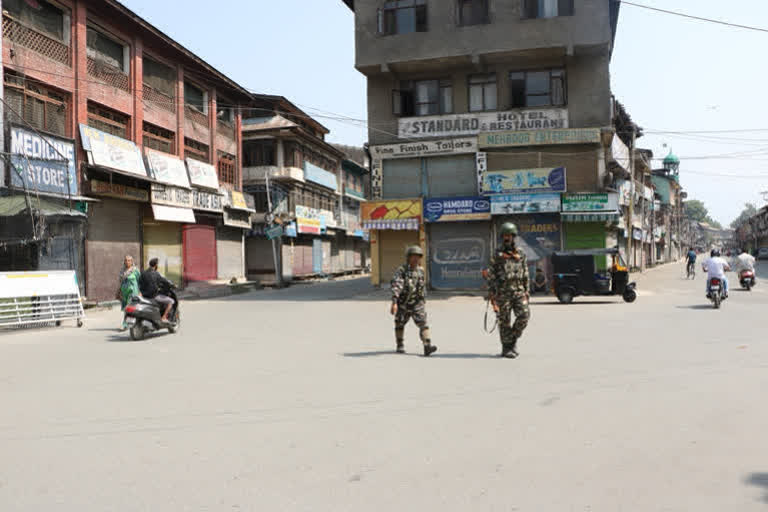Hyderabad: There is hardly any political party or a person in India who would not have dreamed of a complete merger of Jammu and Kashmir with India. The only concern for the aspirants would have been of a fallout, which is why perhaps, Article 370 was amended time and again to make it gradually irrelevant rather than scrapping it outrightly.
The strategic location which this region enjoys, seemingly, may have been one of the reasons for parties to go soft on changing the laws which embodies rules making the place special and unique.
Pertinently, this area is surrounded by two enemy countries -- Pakistan and China -- the direct beneficiaries have their interests in the region -CPEC (China Pakistan Economic Corridor)- adding another angle to the political dynamics of Jammu Kashmir problem.
What Congress could not do in 70 years was planned in 100 days by the Modi-led government during its second term. The political landscape of Kashmir which Nehru wanted to change in a different way was changed by BJP overnight but, the only difference is that the Nehru expected it to happen without much noise and the later least bothered about the screams though a 'colossal militarism' in a neo-classic way was in place well before the action was taken.
The Nehru-led dispensation brought the law (article 370) entitling residents of Jammu and Kashmir to have dual citizenship in order to keep Pakistan at bay which otherwise would have made Kashmir turn into a different zone.
This act was aimed at addressing the emotions of Kashmiri people particularly the then leadership.
Pakistan made numerous attempts to have anti-India militant and political groups in Kashmir active, who would keep on engaging with India at political as well as military front but every time India’s representatives in the form of a mainstream responded them with valid counter-narratives citing indigenous opinions.
Mainstream regional parties, undoubtedly, have made the case for India in Kashmir stronger which separatist parties could not do for Pakistan, post-1947, as the secessionists were divided whether to merge with Pakistan or to remain a free though the choice of freedom was no options as per UN resolutions.
While the mainstream had no such illusions, they only pitched for good governance. Decades of Congress rule have seen ups and downs but never have they allowed unification between mainstream and separatists.
They never gave them a reason to be on the same page rather would pitch ideas which widened the gaps between them.
Paradoxically, modification of provisions of Article 370 has given the regional political parties of J&K a reason to join hands against the central government for they believed their stature and the stature of their polity has been demeaned and they have been reduced to a non-entity.
The anger among the mainstream was such that ‘Gupkar Declaration’ led by the former chief minister and sitting MP, Dr. Farooq Abdullah was not less than a political mutiny.
People like Sajjad Lone and Chaudhary Lal Singh, who would represent BJP in the state assembly, had to be controlled by keeping them either under house arrest or in a hotel turned jail.
Contrary to this the earlier governments not only weakened the separatist sentiments but meticulously changed the political discourse by encouraging people to people contact, opening roads leading to Pakistan through-line of control, demonizing violence to an extent that militancy was like a taboo in Kashmir.
The idea of election in Kashmir was never seen as a legitimate way of electing representatives but the cosmetic way of legitimising the electoral process was so meticulous that separatists at some point of time in 2007 were mulling to participate through proxy candidates.
